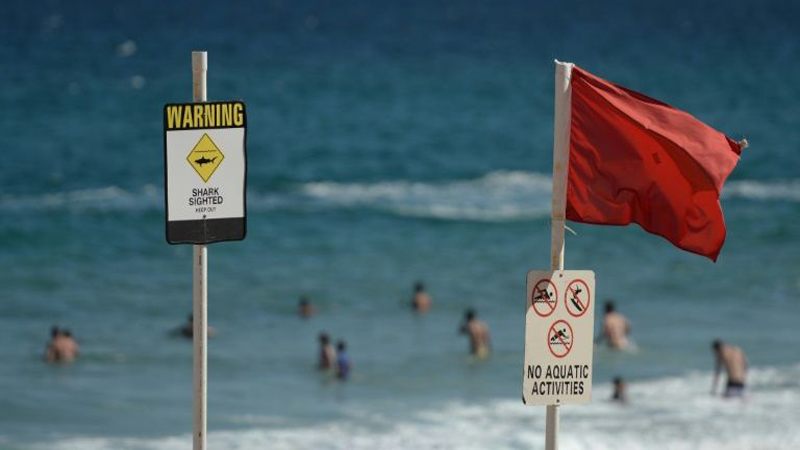Australian researchers test shark-bite resistant wetsuit


An Australian university is testing new materials designed to lessen the impact of shark bites, researchers said Tuesday, in a project aimed at reducing fatalities and easing the nerves of swimmers.
Researchers at Flinders University in Adelaide have received government funding to test a new neoprene — a synthetic rubber commonly used in wetsuits — against the force of a bite from several species, including the great white shark.
The new material — provided by manufacturers the university declined to identify — aims to reduce cuts and punctures from a shark attack, thus lessening blood loss for victims.
“We are cognisant that it will not prevent all injuries as it will not prevent fractures or crushing injuries,” associate professor Charlie Huveneers told AFP.
“However, most shark-bite fatalities are due to blood loss, and the ability to reduce such blood loss along with rapid emergency responses will hopefully decrease fatalities and injuries due to shark bites.”
Despite tens of millions of trips to the beach taken in Australia every year, shark attacks are extremely rare, but each incident sets off public debate about beach safety.
There were 27 shark attacks in Australian waters last year, according to data compiled by Sydney’s Taronga Zoo, including one fatal incident in popular tourist destination Whitsunday Islands, near the Great Barrier Reef.
“Although the risk of shark bites is extremely small, a lot of people are still worried about sharks,” Huveneers added.
“When a shark bite occurs, it can have severe physical, mental, social, and economic consequences. It is therefore important to keep developing new means of reducing shark bite risks and ensure the efficacy of such new products.”
The new neoprene will be tested against standard materials commonly used by surfers and divers, with findings to be released later this year.
There were 18 attacks in 2017 and 26 in 2016, Taronga Zoo recorded.
Many experts point to the increased number of people going into the water as a reason for any increase in attacks.
Published in Daily Times, January 30th 2019.
Recent Posts
- World
Sir Elton John prepares for the future amid health concerns
Sir Elton John has reportedly made plans for the future, purchasing a property near his…
- World
Iran warns US of strong response to threats of bombing
Iran’s Supreme Leader, Ayatollah Ali Khamenei, warned on Monday that the US would face a…
- World
Microsoft turns 50: leading the charge in AI and cloud computing
Microsoft marks its 50th anniversary this year, celebrating a legacy of innovation in the tech…
- World
Trump confident of tiktok deal before deadline
President Donald Trump expressed confidence in reaching a deal on TikTok before the April 5…
- Pakistan
Sugar import approval delayed as prices stay above government cap
The Pakistani government has yet to approve the import of raw sugar for re-export, amid…
- Lifestyle
Macaulay Culkin opens up about estrangement from his father and its impact
Macaulay Culkin has revealed the painful reason behind his decades-long estrangement from his father, Christopher…
Leave a Comment